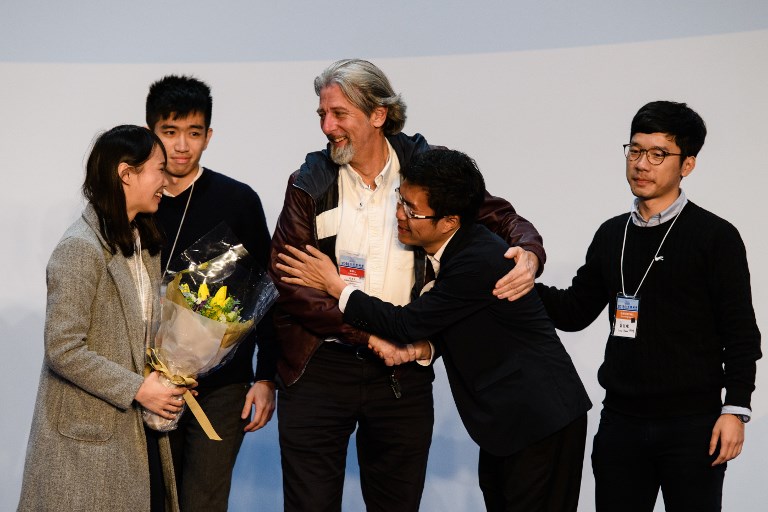Hong Kong’s pro-democracy camp failed to claw back all their lost seats Monday in controversial by-elections as the city’s pro-Beijing establishment further cements its grip.
The result is the latest blow to the democratic movement as China ups pressure on the semi-autonomous city to fall into line after unprecedented challenges including mass rallies calling for reform and the emergence of an independence movement.
Sunday’s vote was triggered after Beijing forced the disqualification of six rebel lawmakers who had swept to victory in citywide elections in 2016.
Four of the six vacant seats were contested in the tense by-elections which saw China loyalists hurl insults at young democracy activists near a polling station.
After the count ended Monday morning the democracy camp had only managed to take back two of the four seats.
Analysts said the disappointing performance reflected the inability of the democrats to present an effective united platform to residents as well as apathy among voters — turnout was less than 50 percent, lower than previous recent elections.
“This is a terribly depressing day for the democratic development of Hong Kong,” political analyst Willy Lam told AFP.
“Beijing will be very happy they have vanquished the spirit of Hong Kong people,” added Lam, who said some voters had simply given up the fight.
The result also reflected the difficulty in the democratic camp which covers a wide spectrum, from pro-independence activists to more centrist politicians.
No veto
The democrats now hold a total of 26 seats in the 70-strong partially elected legislature.
That means they have bolstered their ability to block some important bills, which require two thirds to pass.
However they will continue to be outgunned on the majority of bills which require a lower threshold as they failed to regain the veto power they lost due to the disqualifications.
Activists accused Hong Kong’s pro-Beijing government of political screening after it barred young pro-democracy leader Agnes Chow from standing in the by-elections because her party advocates self-determination for Hong Kong.
Chinese authorities are incensed at the emergence of activists advocating independence and also views calls for self-determination as part of a dangerous splittist push.
The vote came on the day the Chinese Communist Party decided to give President Xi Jinping a mandate to rule for life, intensifying fears that Hong Kong’s freedoms will come increasingly under threat.
Chow’s replacement, Au Nok-hin, held on to the Hong Kong Island seat.
However he described his feelings as “half half” because they camp had not regained all four.
Pro-establishment candidate Vincent Cheng said the election had “been a fight under adverse circumstances” after narrowly beating democrat Edward Yiu — one of the legislators ousted from office after winning a seat in 2016.
The six lawmakers barred from office included former protest leaders and independence activists.
All were removed from their posts for inserting protests into their oaths of office after an intervention by Beijing.
The legislature is fundamentally weighted towards Beijing as only half the 70 seats are elected.
The rest are selected by traditionally pro-establishment interest groups.
It is the latest blow for the democrats who have come under increasing pressure after the failure of 2014’s mass Umbrella Movement to win political reform.
Some leading activists have been jailed on protest-related charges and democracy campaigners fear the space for open political debate is seriously under threat.




